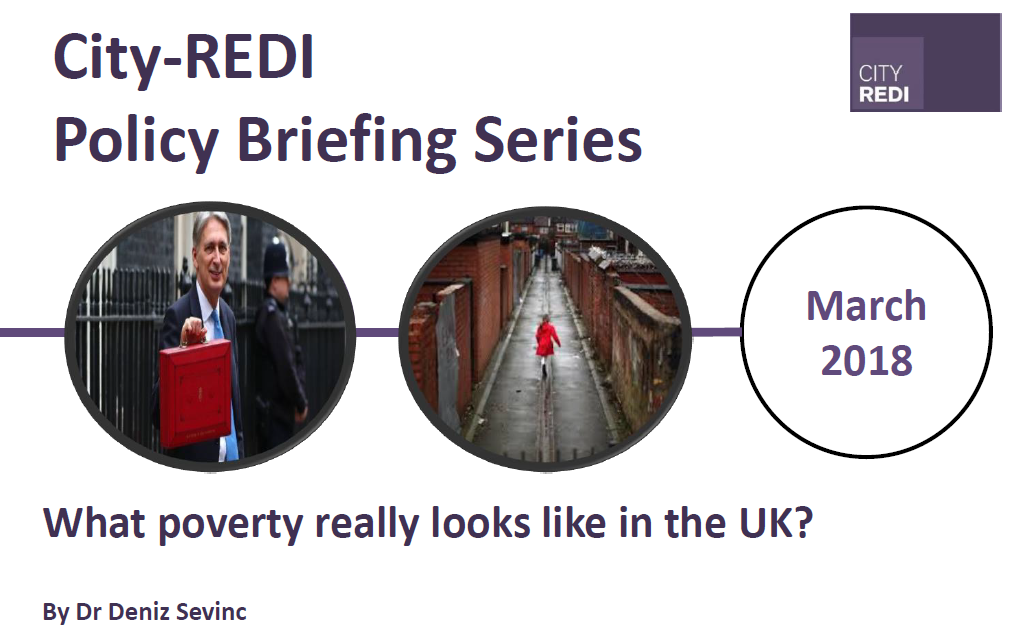 In 2012, the UK had a higher poverty rate than most EU member states. While poverty rates have declined since then, this progress is now at risk since policy changes under the 2017 Autumn Budget. UK Poverty 2017 underlines that “overall 14 million people live in poverty in the UK – over one in five of the population. This is made up of eight million working-age adults, four million children and 1.9 million pensioners”. Despite the government’s efforts to secure a more socially inclusive society with lower levels of multiple deprivation, the UK’s mixed record in tackling poverty should not come as a surprise. The integrated nature of well-being produces difficulties in evaluating poverty levels. One issue is the neglect of human life aspects whilst over-emphasising the importance of income.
In 2012, the UK had a higher poverty rate than most EU member states. While poverty rates have declined since then, this progress is now at risk since policy changes under the 2017 Autumn Budget. UK Poverty 2017 underlines that “overall 14 million people live in poverty in the UK – over one in five of the population. This is made up of eight million working-age adults, four million children and 1.9 million pensioners”. Despite the government’s efforts to secure a more socially inclusive society with lower levels of multiple deprivation, the UK’s mixed record in tackling poverty should not come as a surprise. The integrated nature of well-being produces difficulties in evaluating poverty levels. One issue is the neglect of human life aspects whilst over-emphasising the importance of income.
Thus, determining who the most deprived social groups are and in which life domains they are experiencing deprivation is crucial for generating more effective, holistic poverty reduction initiatives combined with social protection intervention prioritization. It is this challenge that is explored in this policy briefing, attempting to shift the focus of societal development from an income-oriented to a people-centric approach by making the case for an anti-poverty UK agenda that gradually works towards an appreciation of the multidimensionality of well-being.
You can view the full policy briefing here.
You can view the full paper here.
This policy briefing was written by Deniz Sevinc, a Research Fellow at the Birmingham Business School, City Region Economic and Development Institute. She is an applied economist and her PhD investigated multidimensional interdependencies among European countries and dynamics of inequality both in the UK and Europe.
To sign up to our blog mailing list, please click here.
Disclaimer:
The views expressed in this analysis post are those of the authors and not necessarily those of City-REDI or the University of Birmingham.
